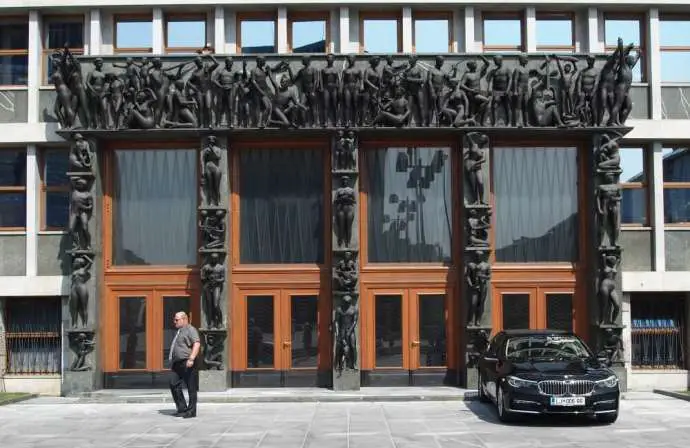STA, 17 May 2021 - A key multi-day plenary at which parliament was to vote on the opposition-sponsored motion to impeach Prime Minister Janez Janša and the coalition's proposal to dismiss Speaker Igor Zorčič was aborted on Monday after MPs failed to endorse the agenda in the first such instance to date. Each side then filed for an emergency session instead.
The agenda of the session for Monday included a decision on whether the National Assembly should request an opinion from President Borut Pahor on the impeachment motion, which was scheduled for debate on Tuesday, with the motion to dismiss Zorčič coming up on Friday.
However, only 42 MPs out of 84 present voted in favour of the agenda. The centre-left opposition voted against which they said was in protest at the new balance of power between the coalition and opposition not being reflected on the parliamentary working bodies which prepare bills for a plenary vote.
They said that most bills on the agenda of the session had been endorsed on working bodies when the group of unaffiliated MPs, formed by three MPs that defected from the coalition Modern Centre Party (SMC) and one who quit the Pensioners' Party (DeSUS), were not able to take part.
The college of deputy group leaders agreed a redistribution of seats on parliamentary working bodies just today, awarding 12 posts to the group of unaffiliated MPs, which also includes Speaker Zorčič.
The centre-left opposition - the Marjan Šarec List (LMŠ), Social Democrats (SD), the Left, the Alenka Bratušek Party (SAB) and the unaffiliated - argued that the vote of the agenda showed the government no longer had a majority in parliament and it was time to call a fresh election.
"This government is doing everything to stay in power, instead of doing what is normal in normal democracies, to go to elections for people to decide who to give their voice to and who should lead the country in the future," Marjan Šarec, the previous PM, commented.
With the plenary cancelled, the centre-left opposition filed for an emergency session to vote on the motion to impeach Janša, while the coalition filed for an emergency session to debate most of the items that were originally planned for the regular plenary, save for the opposition-sponsored bills and their own motion to dismiss Zorčič.
Janša reacted to the vote on the agenda on Twitter, describing it as "totally absurd": "Speaker Igor Zorčič voted against the agenda of the plenary session he is chairing, and thus prevented a debate on a number of solutions important for the people, as well as the impeachment filed by the opposition."
Similar comments were made by the leader of the deputy faction of the ruling Democrats (SDS), Danijel Krivec, who said he could not remember such a conundrum in all his time in parliament. He said the coalition had enough votes but had not expected such a situation.
"A vote on the agenda is envisaged under the rules of procedure. Every MP's vote counts equally, including mine," Zorčič commented, describing allegations that the opposition was afraid of the vote on his dismissal as misguided.
He said the vote on the agenda showed a tight balance of power in parliament, but he believed it was possible to continue work at the National Assembly as normal through talks and consensus. If parliament functions as today, Zorčič agrees with the view it would mean an early election.
Zorčič said there should be no surprises in calling emergency sessions as these needed to be called within 15 days after being requested by at least a quarter of all MPs. However, the agenda of an emergency session needs to be confirmed in a vote just like in the case of a regular session.
He announced he would call a meeting of heads of deputy factions as soon as possible to resolve the situation following today's developments.
Commenting on the development, Miro Haček, a professor at the Ljubljana Faculty of Social Sciences, says it is yet another sign of how the current balance of power is hampering parliament's work, at times making it impossible, as no side has an "a priori majority" secured.
In Haček's estimates the opposition can reach up to 43 votes in the 90-strong legislature and the coalition up to 47, where the votes cannot be taken for granted at all.
Such a situation gives the small parties that support government projects, the National Party (SNS) and the Pensioners' Party (DeSUS), much bigger power as their size would merit, while it forces the two minority MPs in a "thankless role" of tipping the scales.
Haček does not find it surprising the coalition opted against making the proposal to dismiss Zorčič part of the agenda of an emergency session, as one DeSUS and one SMC MPs are currently absent in a situation where every vote counts.






